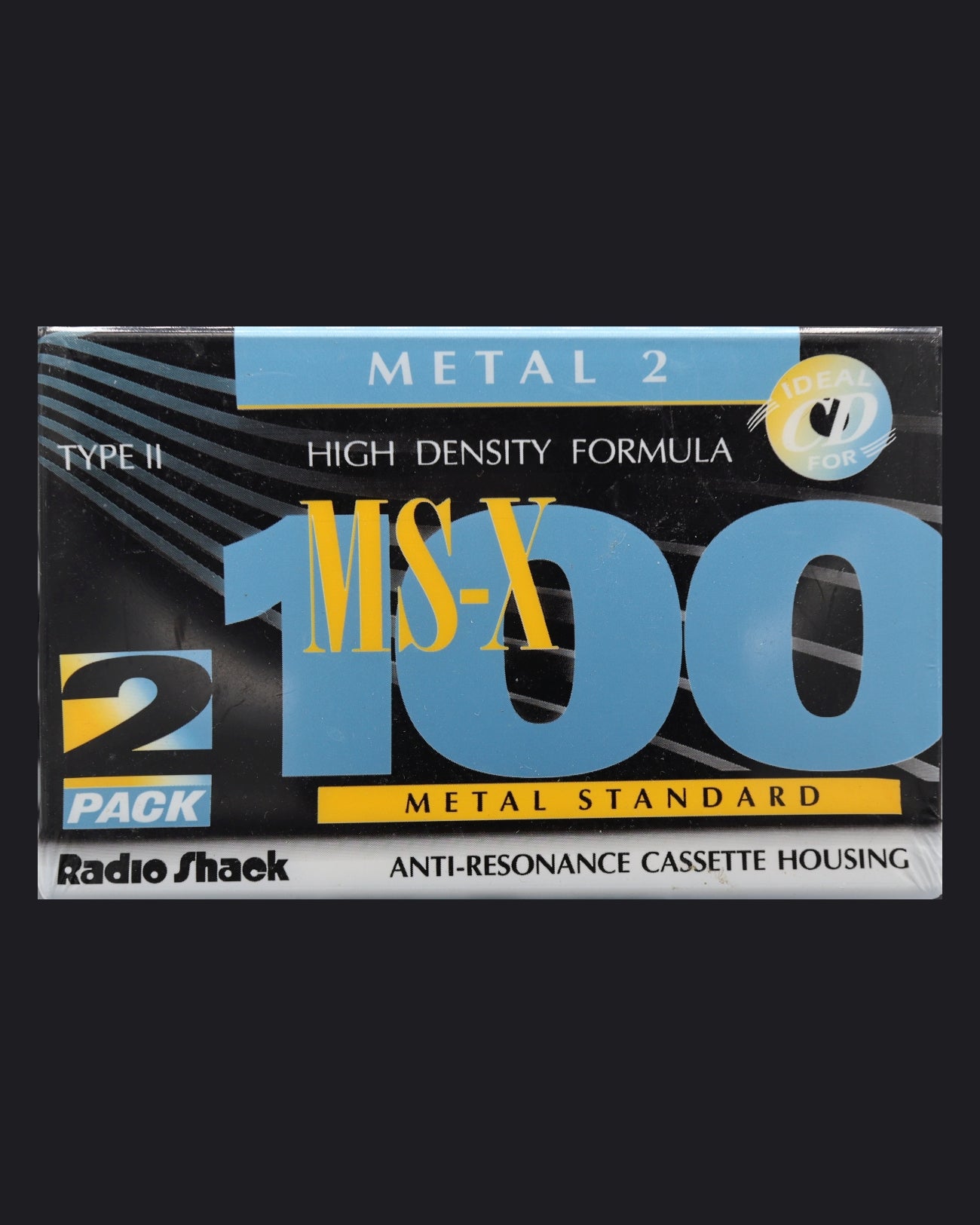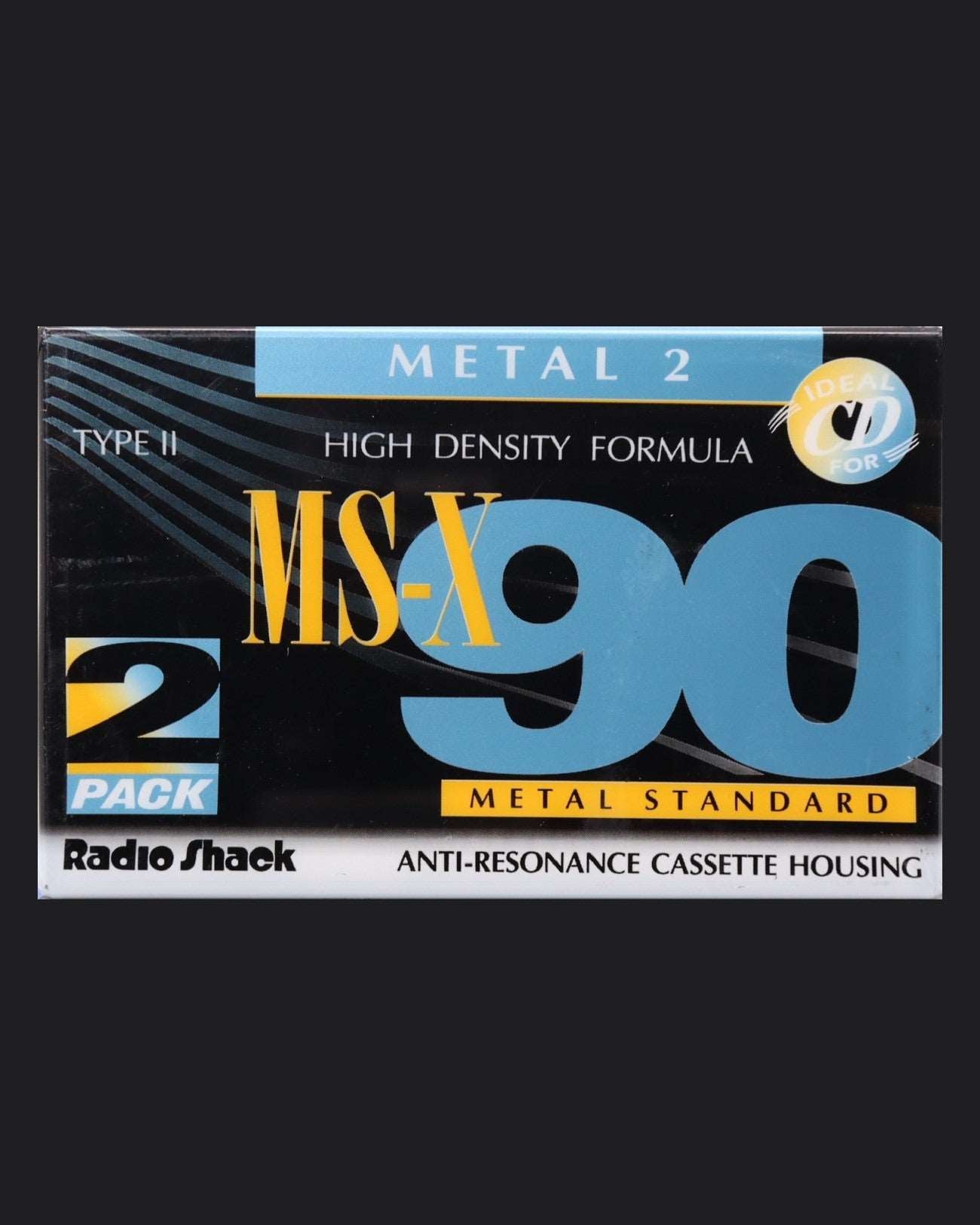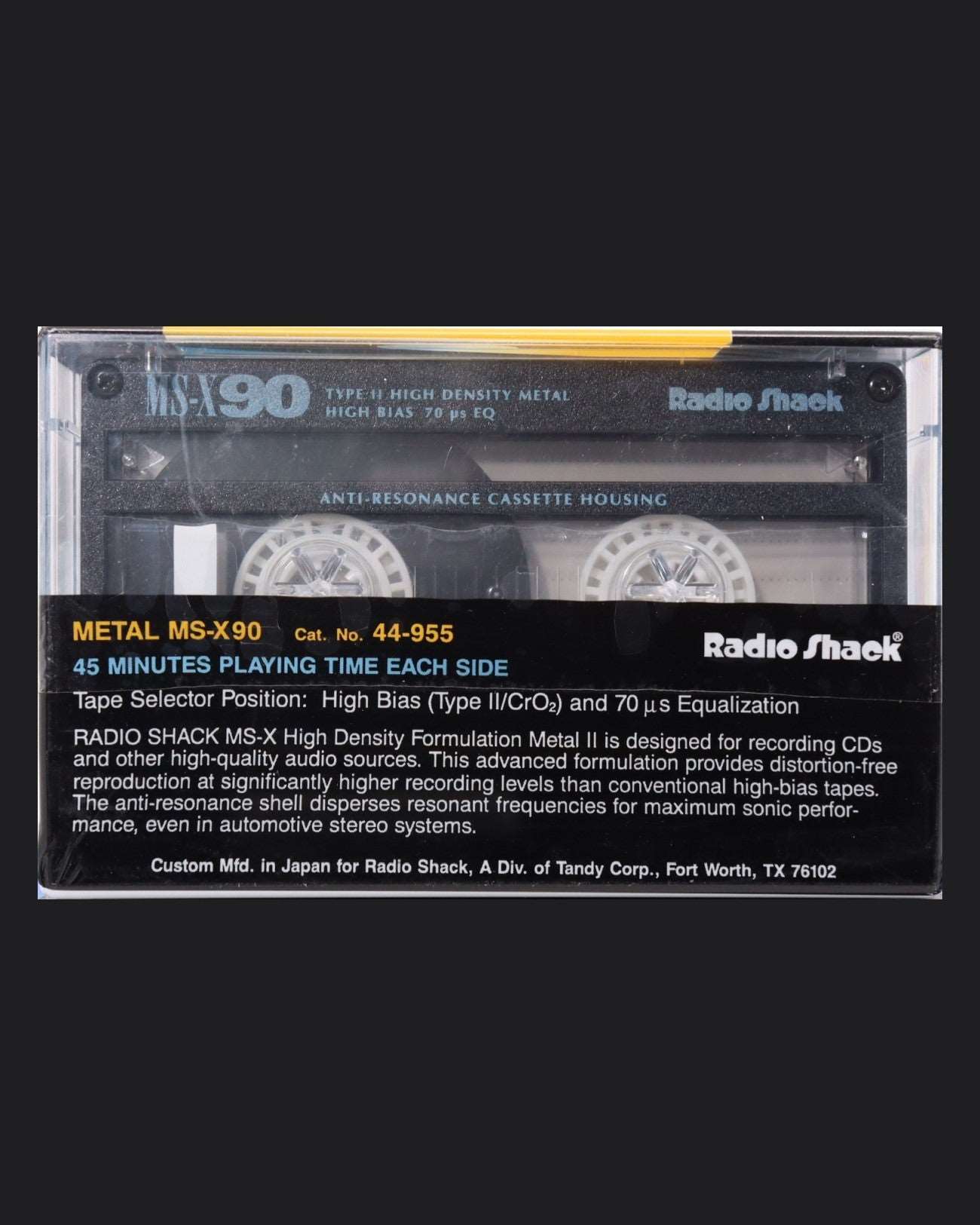Radio Shack MS-X (1995-2000 US)
Radio Shack MS-X (1995-2000 US)
Only a few left…
Couldn't load pickup availability
Radio Shack MS-X (1995-2000 US)
Radio Shack MS-X Cassette Description
The Radio Shack MS-X cassette tape, produced in the United States from 1995 to 2000, is a high-quality, blank audio cassette designed for data storage and audio recording. It is part of the compact cassette format, which has been a standard for analog magnetic tape recording since its introduction in 1963. This cassette tape is ideal for users requiring a reliable medium for music, and other audio content.
Radio Shack MS-X Technical Specifications
- Media Type: Magnetic tape cassette
- Encoding: Analog signal, in four tracks
- Capacity: Typically 30, 45, and 60 minutes per side (C60, C90, and C120)
- Track Width: 1.5 mm for mono recording, 0.6 mm for stereo mode with a 0.3 mm separation to avoid crosstalk
- Head Gap: 2 μm, allowing a theoretical maximum frequency of about 12 kHz at the standard speed of 1 7/8 ips (4.76 cm/s)
User Reviews
Users have praised the Radio Shack MS-X cassette tape for its reliability and compatibility with various audio equipment. One user noted, "The tape has consistently provided clear recordings and easy playback, making it a reliable choice for both data storage and audio recording." Another user mentioned, "I have used this tape for storing music and it has performed well, with minimal degradation over time."
Radio Shack MS-X Key Features
- Blank Tape: Ideal for recording and storing data, music, and other audio content.
- Analog Magnetic Tape: Ensures high-quality audio and data storage.
- Compact Design: Easy to handle and store, with dimensions of 4 by 2.5 by 0.5 inches (10.2 cm × 6.35 cm × 1.27 cm).
Improvements over Previous Generation
While specific improvements for the Radio Shack MS-X cassette tape are not detailed in the available sources, it is part of the ongoing evolution of compact cassette technology. The use of cobalt-doped iron oxide tapes, introduced in the 1970s, enhances overall tape output levels and improves data storage capabilities.
Share






